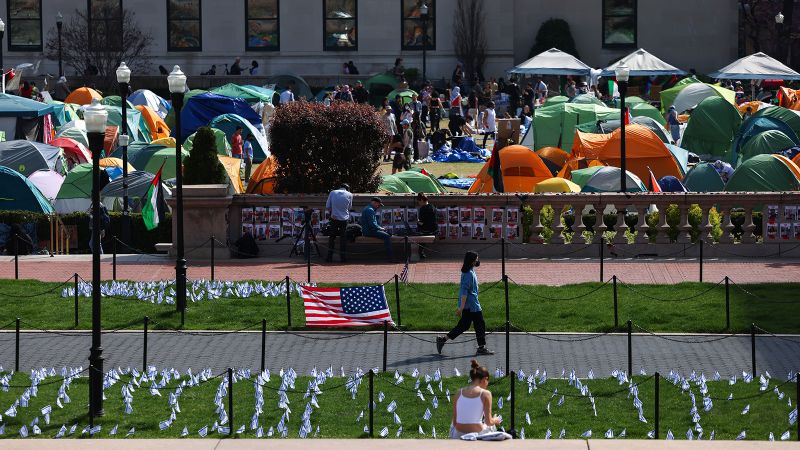Columbia University is beginning the new school year in turmoil following the resignation of President Minouche Shafik. Shafik faced mounting pressure to step down over the university’s handling of campus protests after the Hamas attack on Israel and the war in Gaza. Her resignation came as a surprise, as the campus had been relatively quiet over the summer. It remains unclear why she chose this moment to resign, citing a toll on her family in her statement.
The turmoil at Columbia University over the past year included protests, arrests, and resignations of deans accused of antisemitic behavior. Shafik’s resignation is part of a trend of university presidents stepping down after mishandling campus protests and allegations of antisemitism and anti-Muslim activity. Calls for her resignation escalated after pro-Palestinian demonstrations spread to campuses nationwide, calling for divestment from companies supporting Israel and attention to the humanitarian crisis in Gaza.
Shafik faced criticism for authorizing the New York Police Department to arrest protesters on campus, leading to faculty staging a walkout in support of students’ right to protest peacefully. Attempts to negotiate with protest representatives were unsuccessful, leading to further arrests and backlash against Shafik for not de-escalating the situation before involving the police. The response to the nationwide movement was harsh, with universities cracking down on protesters through arrests, sanctions, and cancellations of classes and ceremonies.
Shafik’s testimony to the House Education Committee on the university’s handling of antisemitism was also a point of contention, with lawmakers finding her responses insufficient. As the Israeli-Hamas war continues and tensions rise globally, new policies are being implemented on university campuses to protect free speech while maintaining order and safety. Harvard formed task forces to combat antisemitism and anti-Muslim activity, recommending improvements in disciplinary processes, dialogue promotion, and staff and student training. However, it remains to be seen how universities will respond to demonstrations in the new school year.
The impact of the Israeli-Hamas conflict and rising antisemitism and Islamophobia is likely to continue affecting university campuses. Recent rules and policies aim to protect students’ rights to free speech while preventing hate speech and threats. While some universities have outlined new rules, it is uncertain whether they will prevent protests in the upcoming school year. A federal judge’s ruling against the University of California, Los Angeles for not allowing pro-Palestinian protesters to block Jewish students marks a significant development in how universities handle demonstrations. The ruling emphasizes the need for balance between free speech and safety on campus.


